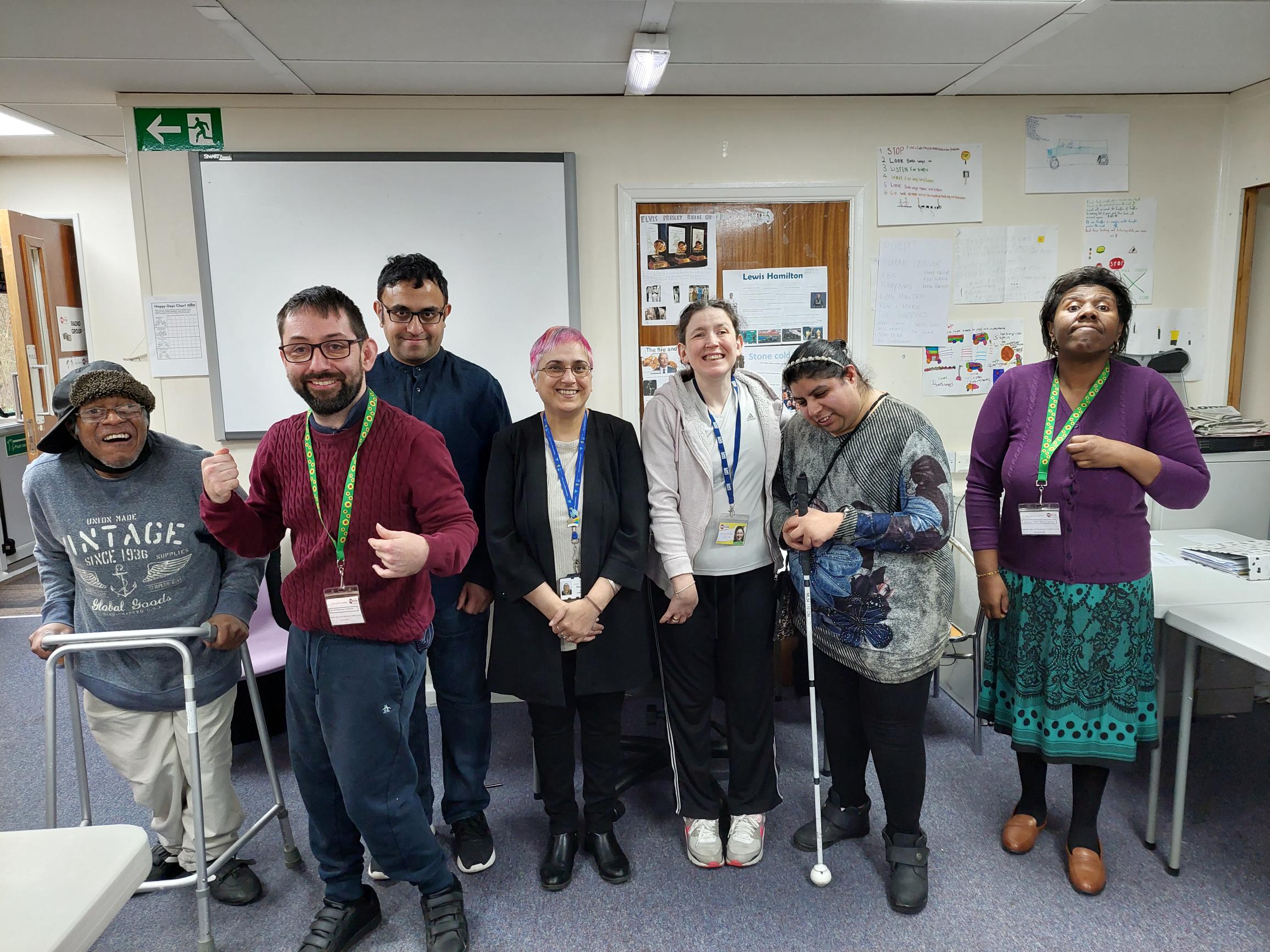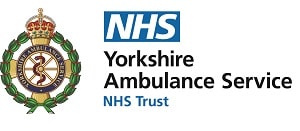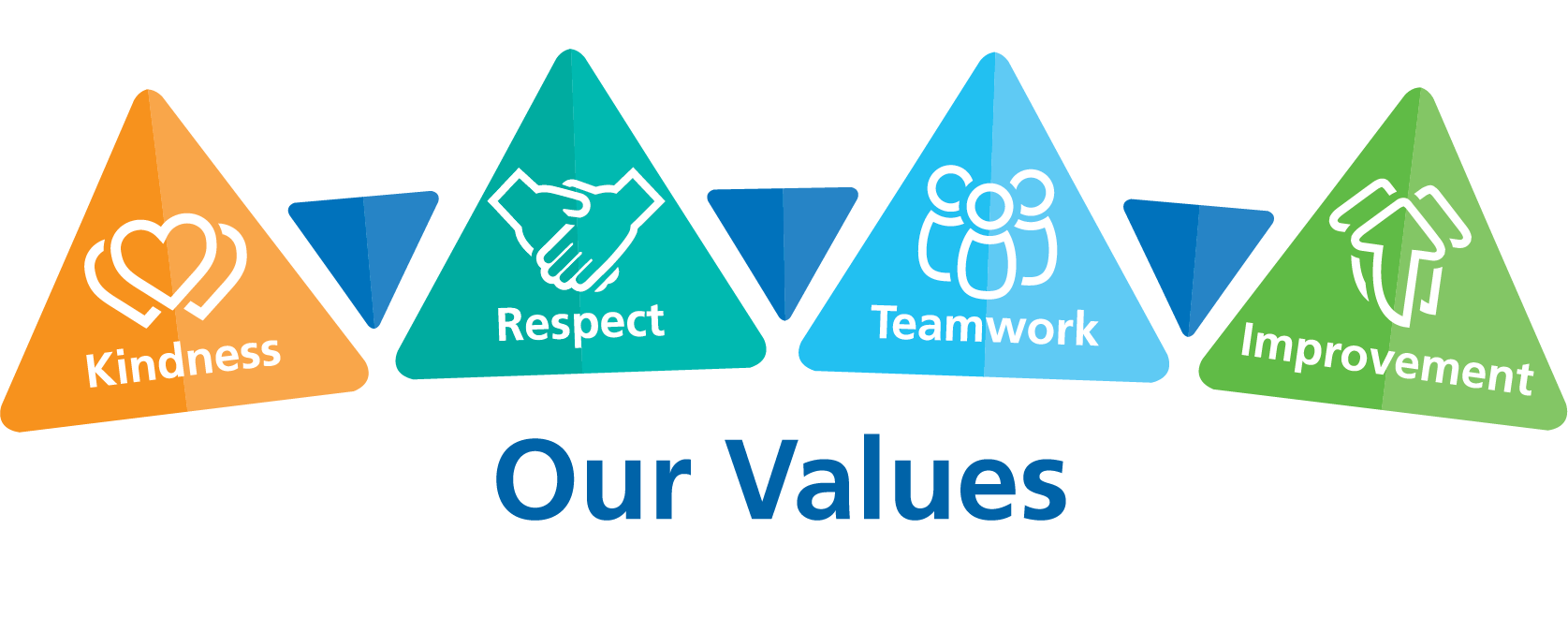Neurodiversity Celebration Week
13 March 2023

Rita Hanson, Learning Disability and Autism Project Co-ordinator, gaining feedback about our services from care workers and the people they look after at Sheffield Mencap
Work is underway to improve our services for people living with a learning disability and those who are neurodivergent.
Rita Hanson has been seconded as the Trust’s first Learning Disability and Autism Project Co-ordinator and is responsible for planning, implementing and monitoring a range of projects.
As part of Neurodiversity Celebration Week, from 13-19 March, we are focusing on the work that is being carried out which includes:
- consulting with patients and staff to obtain user feedback which will shape how we develop our services
- looking at mandatory learning disability and autism training over the coming months and how that could be delivered
- piloting the Reminiscence Interactive Therapy Activities (RITA) digital solution for all patients with a focus on those living with learning disabilities, those who are neurodivergent or have complex needs.
Neurodiversity Celebration Week is a worldwide initiative that challenges stereotypes and misconceptions about neurological differences. Approximately 15-20% of the population has a neurological difference.
Depending on how our brains are wired we think, move, process information and communicate in different ways. Neurodiversity is often used as an umbrella term to describe alternative thinking styles such as:
- ADHD stands for ‘attention deficit and hyperactivity disorder’ and can be a lifelong condition. People with ADHD may have difficulty concentrating, tend to fidget, are forgetful and sometimes make impulsive decisions. Lots of the main symptoms of ADHD are things that impact behaviour, mood and thinking.
- Autism Spectrum Disorder (ASD) is a developmental disorder that impacts the way a person perceives and communicates, often resulting in challenges with social interactions and processing information. It is a spectrum disorder that affects each person to a varying degree, ranging from mild to severe.
- Dyslexia is a language processing disorder can hinder reading, writing, spelling and sometimes even speaking.
- Dyspraxia is a condition that affects mainly movement – gross and fine motor skills but also any or all of the areas of age-appropriate developments such as language skills, social skills, sensory, emotional skills and perception.
- Dyscalculia is a specific and persistent difficulty in understanding numbers which can lead to a diverse range of difficulties with mathematics.
- Dysgraphia is a neurological disorder of written expression that impairs writing ability and fine motor skills.
- Tourette Syndrome is a condition that causes a person to make involuntary sounds and movements called tics. It usually starts during childhood, but the tics and other symptoms usually improve after several years and sometimes go away completely.
But regardless of labels, neurodiversity is about recognising those who think differently. And no matter where you are, we can all benefit from different thinkers!
Produced by: Corporate Communications Department

